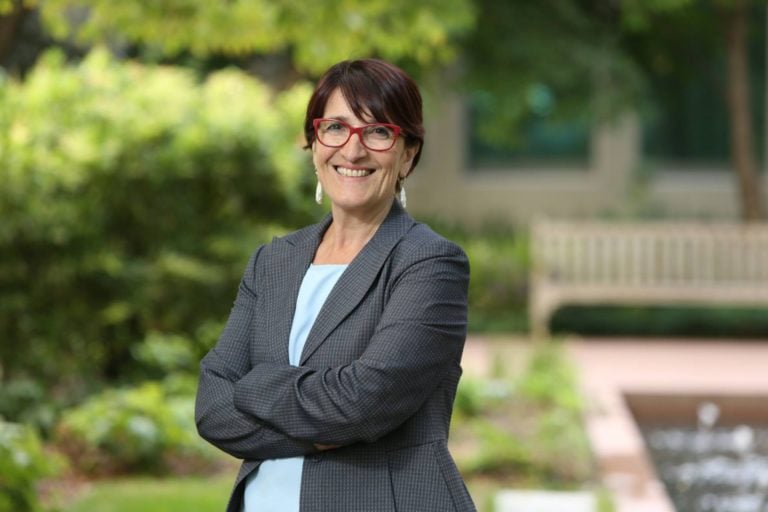Prior to the COVID-19 pandemic, Neos Kosmos had published a series of articles on whether the time had come to reboot multiculturalism. If anything, the global pandemic has justified the focus, showing cracks in the system.
Never before have foreigners felt less welcome in Australia.
Australia’s Prime Minister Scott Morrison’s statements that visaholders and international students unable to support themselves should “make (their) way home” was a slap in the ‘welcoming’ face of multicultural Australia, whereas Labor Home Affairs frontbencher Kristina Keneally’s calls for a substantial cut to future Australian temporary immigration intakes could feed nationalist, anti-immigration sentiments.
We cannot help but remember late demographer Charles Price, who compared the Australian appetite for immigration to the feeding patterns of a boa constrictor taking huge gulps of migrants during periods of economic boom but cutting back dramatically during economic downturn. Bearing this in mind, we asked this week’s panel of experts the following question: How is COVID-19 changing multiculturalism and the nature of migration to Australia?
Minister Alan Tudge
Australia is the most successful multicultural nation in the world. At no time has this been more evident than during the crises we have faced this year – first the bushfires and now the coronavirus pandemic.
Australians, regardless of their background, have listened to the advice and adhered to social distancing to keep themselves, their families and our communities safe. As a result, we have reduced the spread of COVID-19 better than almost any nation.
I have hosted online roundtables with some 100 community leaders in recent weeks and heard of many multicultural community groups that have come together during the pandemic to support their fellow Aussies. They have raised funds, provided food parcels and delivered groceries to those in need.
Multicultural groups have also been delivering face masks and personal protective equipment to hospitals, health staff and other frontline professionals.
Importantly, they have been using their networks and contacts to share and distribute the Government’s information on safety measures and support services available during this time.
I join with all Australians to thank multicultural communities for all they have done to help our nation get through this pandemic. Now is a time to come together and support one another.
Obviously our focus at the moment is on preventing the spread of the virus by keeping our borders closed. As a result, immigration will likely be 85 per cent lower next financial year.
But at some stage in the future, we will reopen our borders, because we’re a country built on migration and we’ll continue to be a country built on migration.
The Hon. Alan Tudge is the Acting Immigration Minister.
READ MORE: Looking for mateship and multiculturalism in Whittlesea

Maria Vamvakinou MP
The COVID-19 pandemic has, as we all know, presented us with the challenge of rebuilding our economy and creating employment. Inevitably, this has reopened the perennial debate about immigration and population policy. These are legitimate issues for us as a nation to tackle, but we must be very clear that the debate should not descend into xenophobia or scapegoating.
Australia’s unemployment rate reached 6.2 per cent in April, and is expected to grow even higher. There is hope that many people will be able to return to their jobs once the worst of the crisis has passed and restrictions are eased, but we also know that realistically, this won’t be the case for everyone.
It is simplistic to say, however, that migration should automatically be reduced as a response to high unemployment. As the history of Australia’s social and economic development has shown, a well- managed migration policy actually helps to build our economy and create jobs. Australian nationhood has been built on migration. The various components of our migration program are central to our economic, social and cultural future, whether it is addressing skill shortages through skilled migration, enabling family reunion, or resettling refugees in urgent need of safety and security. Of course we must craft our migration program in a way that ensures access to jobs for current Australians citizens and residents.
We need to find ways to again welcome international students, to help rebuild our vital education export industry. These students are important not just economically for our university sector, but provide an important opportunity for Australia to build cultural links and to support the development of other nations in our region by building intellectual capital and capacity.
It may be necessary to readjust our migration intake in the short term, to accommodate for local employment needs, but our response should be measured, informed and developed within a vision for our nation’s long term future.
We also need to be unambiguously clear that an immigration program is quite a separate issue from multiculturalism. As community leaders, we have a responsibility to demonstrate to the nation that, while we can review our immigration policy according to our social and economic needs, racial intolerance, abuse and discrimination are NEVER acceptable. Regardless of who might become Australian in the future, our national identity and social cohesion depends on how all those living in Australia today are treated. We must condemn the reported incidents of abuse and harassment of Asian Australians and international students in recent weeks. While people are clearly frightened by the disease, and frustrated by the impact of restrictions, there is no excuse for vilifying anybody on the basis of race, ethnicity or appearance. Multiculturalism has been built in this country over many decades, and is central to our social cohesion.
Our recovery from the pandemic will depend very much on both building our economy, and maintaining our national unity and inclusiveness.
Maria Vamvakinou is the Labor Federal MP for Calwell.
READ MORE: Do we need to ‘reboot’ our policy of multiculturalism?

Professor Nikos Papastergiadis
Multiculturalism has brought two great gifts to Australia. First it helped debunk a whole raft of stereotypes. Second it encouraged new forms of sociality. Australia is a much better country for it, as it is now beyond dispute that multiculturalism has been woven into the core of national identity. At the very least it is a platitude that is shared by both sides of politics, and at its best, it is a useful policy for sharpening social inclusion and stimulating cultural renewal.
The pandemic of COVID 19 presents a new challenge to multiculturalism and therefore to the core of our national identity. First there is the status of the mask. Obviously masks are being proposed now for health reasons. However, there is also an old and new symbolism that has been pinned onto them. Will the political resonance, that is now associated with masks in Hong Kong and in the USA be reproduced in Australia? Will we look at the mask and also recall the ‘fears’ of the veil? Second what will happen to the idea of multicultural festivals? For decades, we have invented new cultural scenes in which strangers, who would normally never meet, let alone touch each other, were encouraged to find common cultural ground. The festival which was based on intimacy with strangers now requires social distance, masks, gloves, or even more likely, it can only happen on a zoom platform. These two points cast a deep question on our capacity to not lapse into stereotypes and also reinvent our modes of sociality.
Professor Nikos Papastergiadis is the Director of the Research Unit of Public Cultures Media and Communication Program at the School of Culture and Communication, University of Melbourne

Cr Kris Pavlidis
Multiculturalism is changing.
We cannot afford to lose sight of the economic and societal benefits of multiculturalism and migration. In the face of the coronavirus pandemic, it is no surprise that through this unprecedented societal crisis has surfaced the best and worst of people’s behaviour. We’ve seen people banding together through their specific community:Greek, Sikh, Vietnamese and so forth, to relieve the devastation faced by individuals and families. The pursuit of a “Kindness Pandemic” and social cohesion.
As our society changes, the experience of and ideological framework for Multiculturalism is evolving. In order to remain relevant, it needs to reflect this changing dynamic and redefine the trajectory, while acknowledging the transecting variables that impact upon it. Not since Paul Keating have we had a national led discussion/debate about Multiculturalism. The Shadow Minister for Multicultural Affairs Andrew Giles acknowledges the pressing need for national leadership and responsibility.
Unfortunately or fortunately, the COVID-19 crisis has exposed and highlighted our human fragility and the existing deficit in many structural and systemic areas. This includes the overt ugly racism experienced by individuals, vulnerable and marginalised groups falling through the cracks, eg new migrants and women, and the inherent inequity as manifested through the ability of some to be more protected from these risks.
Our Multiculturalism is once again tested.
Herein lays the opportunity to review, reflect and redesign for a safer, inclusive society for all as we move forward.
Kris Pavlidis is the Senior Deputy Chairperson the Federation of Ethnic Communities’ Councils Australia and Director Ethnic Communities Council of Victoria.

